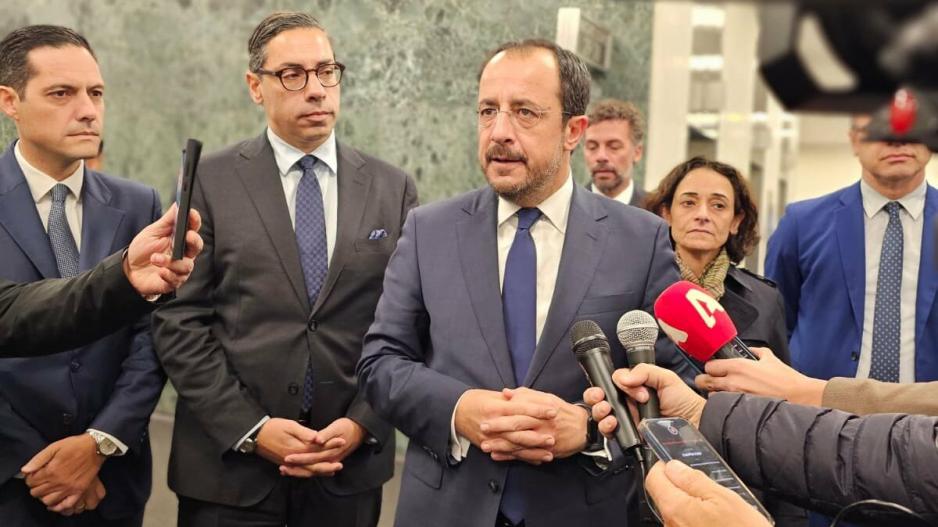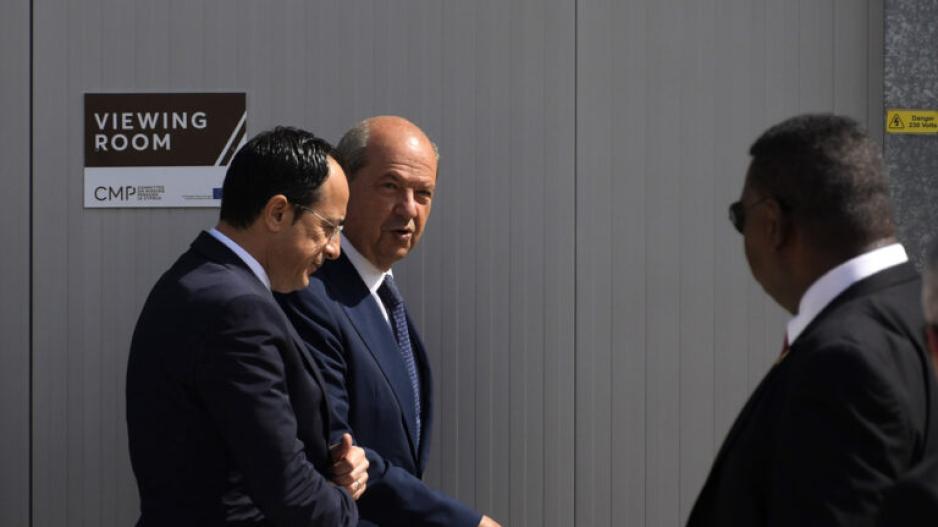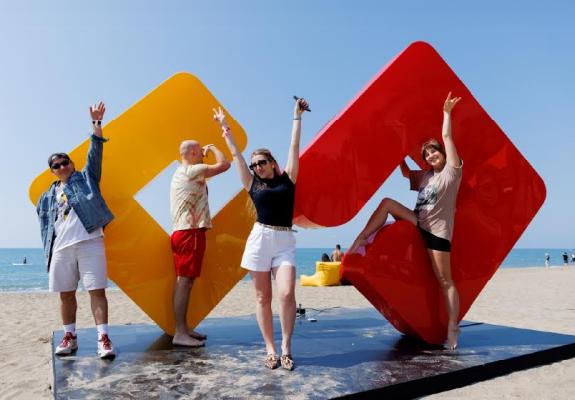Analysis: A Tough Road Ahead for Cyprus Talks
When It Comes to the Cyprus Issue, the Sense of National Unity Is Essential for Navigating the Crucial Weeks Ahead
The approximately 90-minute meeting between the President of the Republic of Cyprus, Nikos Christodoulides, the Turkish Cypriot leader, Ersin Tatar, and the Secretary-General of the United Nations, António Guterres, as part of the informal trilateral meeting at the UN headquarters in New York, produced some useful results.
Additionally, an informal roadmap for the continuation of talks was laid out, despite the absence of concrete breakthroughs.
Both sides agreed to hold an informal multilateral meeting in the near future, under the auspices of the UN Secretary-General, with Deputy Secretary-General Rosemary DiCarlo tasked with facilitating the necessary consultations and preparations. However, the participation of the third guarantor power, the United Kingdom, remains a contentious issue. While the Greek Cypriot side supports the UK’s involvement, the Turkish Cypriot side is opposed. Whether this multilateral meeting will take the form of 2+2 (Greece-Turkey) or 2+3 (UK, Greece, Turkey) is yet to be determined.
>>Timeline: Key Moments From the Trilateral Meeting on the Cyprus Issue in New York<<
Before this multilateral meeting takes place, Christodoulides and Tatar are likely to meet in Nicosia to explore the possibility of opening new crossing points as part of broader Confidence-Building Measures aimed at fostering greater trust between the two sides. Disagreements persist over the locations of these crossing points, making the outcome of such discussions difficult to predict at this early stage.
The road ahead is difficult. This was indirectly acknowledged by the UN Secretary-General, who admitted that the mission of his special envoy, María Angela Holguín, "failed," stating that "no common ground had been found between the leaders on the way forward on the Cyprus issue."
>>Statements by Nikos Christodoulides and United Nations<<
Nevertheless, Guterres maintained a degree of cautious optimism, describing the evening as "very good" and urging both leaders to move forward with plans for the multilateral meeting and further discussions in Nicosia on opening new crossing points.

Discussions on Confidence-Building Measures focused primarily on the potential opening of new crossing points, with Tatar again advocating for the opening of the Mia Milia crossing. In response, Christodoulides stated that the Greek Cypriot side would support the opening of either the Pyroi or Kokkina crossing, alongside Mia Milia.
Additionally, Christodoulides proposed the establishment of a Truth Commission as a Measure, which Tatar rejected, citing the need for a comprehensive settlement first. A proposal for the creation of a youth technical committee was also rejected by Tatar.
Despite the difficulties, Nicosia has characterized the outcome of the meeting positively, with government sources indicating that no deadlock was reached, contrary to the Turkish Cypriot side's expectations.
Regarding the Turkish Cypriot demand for sovereign equality, President Christodoulides acknowledged that no progress had been made on substantive issues. "I did not hear anything different from Mr. Tatar, and I, of course, responded to the issues he raised, which are well-known and have been publicly stated before," he remarked.
>>Cyprus Issue: Outcomes of the Trilateral Meeting - Next Steps and Initiatives<<
Additionally, during the meeting, Tatar reportedly requested that Christodoulides intervene in the arrests related to the seizure of Greek Cypriot properties, a request which the President rejected.
No concessions or compromises were made on critical strategic issues for either side. The two tangible outcomes of the meeting—the agreement to hold an informal multilateral gathering and the discussions on opening new crossing points—are viewed as positive developments, given the real possibility that the trilateral meeting could have ended with no progress at all.
However, the path forward remains challenging. The success of future discussions on opening new crossing points is far from guaranteed, and although the multilateral meeting will likely take place, it will remain informal.
Looking ahead, the sense of national unity that emerged during the National Council meeting and in the days leading up to today's trilateral meeting is a necessary condition for navigating the crucial weeks to come. It’s finally time for everyone to rise to the occasion.






